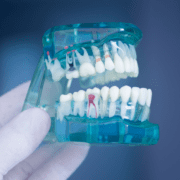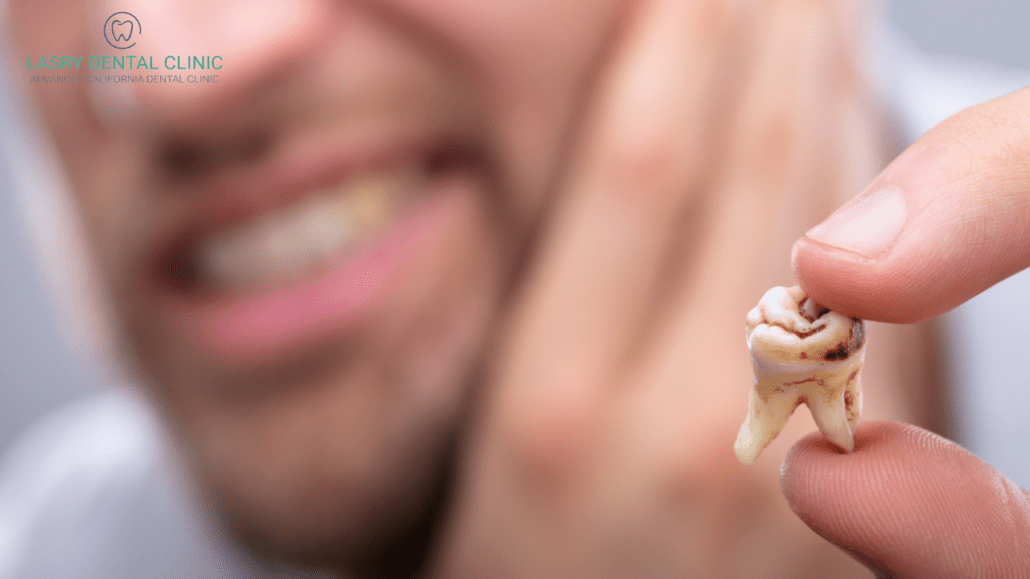What is Dental Erosion? A Guide From Your LA Dentist
For many people, yellow teeth are a normal part of life, but they fail to realize it’s one of the main signs of dental erosion.
The natural tone of teeth typically takes a yellow hue. However, the shade it shows is significant when distinguishing between healthy dental hygiene or a need for a trip to the dentist. In present studies, 46% of young adults already show signs of dental erosion, and the number is exponentially increasing.
Some erosion is normal as people age, but some stages go past normalcy. This is why it’s important to know and understand the signs of teeth abrasion.
RELATED: THE BEST ORAL HYGIENE ROUTINE FOR SELF-CARE ENTHUSIASTS
What Is It and Why Should You Care?
Dental erosion is when the surface of teeth decays by acid which, as we mentioned, is normal to a certain extent. But after multiple acidity attacks from various supplements, the tooth enamel begins to deteriorate, leaving your teeth in a vulnerable state.
Unfortunately, enamel erosion affects a wide range of people, which include adults and even children. And according to the National Center for Biotechnology Information, teeth erosion is 8.5 times more common in people who have eating disorders.
Damage to your tooth’s enamel can lead to a ton of problems that can affect your overall health. The enamel on your teeth act as a coat of armor. The more acid wears on your tooth’s outer surface, the less protection your teeth, gums, and nerves will have. This opens the door to cavities or gum disease that can impair your ability to eat, drink, or even speak. It also causes bad breath and excruciating pain in your teeth, inhibiting you from participating in your daily routines.
That includes being able to make a trip to your favorite coffee spot around the corner.
RELATED: THE ONLY AT-HOME TEETH WHITENING PRODUCTS APPROVED BY THE ADA
What Causes Teeth Erosion?
There are a variety of reasons why teeth erosion occurs.
It can range from your dietary intake to your fluid intake, but distinct practices are the leading cause.
Four main causes of teeth erosion are:
- Acid influence through food intake: Acidic foods can change the color of teeth and damage the protective layering.
- Certain medications: When the medication comes in direct contact with your teeth (like aspirin), it can wear away the top layers.
- Diseases: Some diseases (i.e., Gastroesophageal reflux) can cause acidic stomach contents to reach the oral cavity. When that happens, the acid reflux can essentially “corrode” and damage to the inner sections of your teeth
- Acidic drinks: Sports drinks or fruit juice may weather away the enamel of teeth which, again, opens the door to bacteria.
The amount of acid that your teeth is subjected to is the main culprit behind dental erosion. The damage to the enamel can lead to bacteria building in your teeth that can cause cavities or infection.
So maybe think twice before putting that lemon in your water!
RELATED: FOOD THAT IS BAD FOR YOUR TEETH
Treatment for Dental Erosion
So, what are the warning signs of dental erosion, and how do you treat it?
The signs of enamel damage can vary depending on what stage they’re in. Some signs consist of:
- Sensitivity: Certain foods like sweets and hot or cold food may cause slight pain.
- Teeth discoloration: As the enamel strips away, the pulp on your tooth is exposed, making it appear more yellow.
- Cracks and chips: The edges of your teeth can be more rough, jagged, or irregular as the damage occurs.
- Smooth and shiny surfaces: This can be a sign of mineral loss in teeth.
- Severe sensitivity: In later stages, your teeth can be extremely sensitive to sweets and the temperatures of foods. You may feel sharp jolts of pain.
- Cupping: Whenever you take a bite of something or chew, an indentation appears on your teeth.
Erosion is a problem that affects all ages. Typically, a child grows in their molars around the age of two. Permanent “adult” molars start growing at age six, which is actually the age when we can start to detect signs of tooth decay.
The National Center for Biotechnology Information analyzes that more than 30% of 14-year-olds show evidence of erosion on their teeth’ palatal (inner) surfaces. The moment that people can ingest acidic substances, there are chances of obtaining damage to their teeth.
How a Dentist Treats Damaged Enamel
Fortunately, there are ways to treat damaged tooth enamel.
If you have experienced extensive enamel erosion, your dentist can assist you with treatments through a few techniques.
The first is Bonding, a procedure where resin (a tooth-colored material) is applied to the damaged teeth. It can cover up discoloration and protect teeth from bacteria. However, in more severe cases, your dentist may add veneers or a crown to the damaged teeth.
In our opinion, it’s best to prevent enamel erosion altogether. And it all starts at home.
How You Can Prevent It At-Home
There are many ways to prevent dental erosion. Even if you have minimal damage from it, you can still use these techniques to keep it from worsening:
- Have a healthy diet.
- Drink water instead of soft drinks such or juice.
- Reduce the time and number of acidic drinks that you ingest.
- Seek medical treatment for acid reflux or vomiting.
- Do not chew supplements that contain vitamin C unless advised by medical professional. Try to swallowing them whole if possible.
- Chew sugar-free gum to promote saliva flow to prevent a dry mouth (and dental erosion).
- Brush your teeth with a soft-bristled toothbrush.
- Use toothpaste and mouth rinses that contain fluoride.
- Make sure you’re visiting the dentist twice a year.
Committing to these practices will help to dimmish chances of obtaining dental erosion. Overall, maintaining good oral hygiene and being aware of acidic intake will help prevent enamel damage. You know what they say, a mouth rinse a day keeps the dentist away!
RELATED: HOW TO GET RID OF PLAQUE BUILDUP ON TEETH
Ready for your next dental appointment? Book your appointment with us! Lasry Dental Clinic is located in South Beverly and Wilshire in between Beverly Hills and Beverlywood.









Leave a Reply
Want to join the discussion?Feel free to contribute!